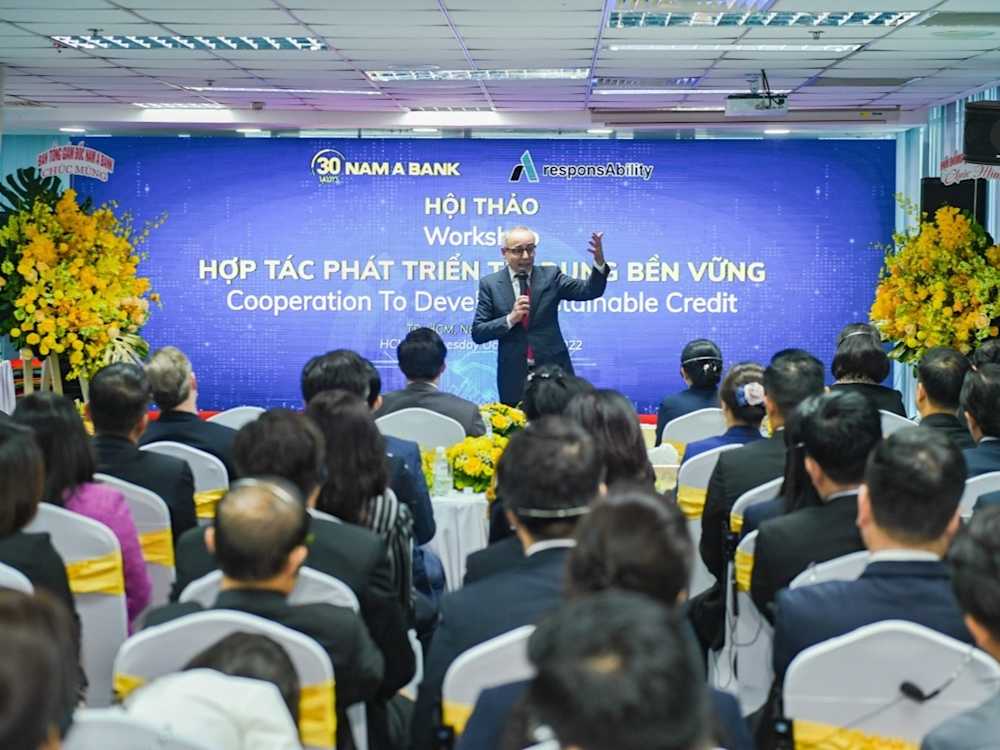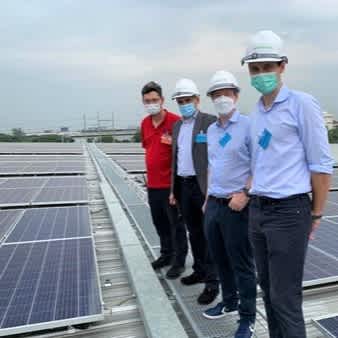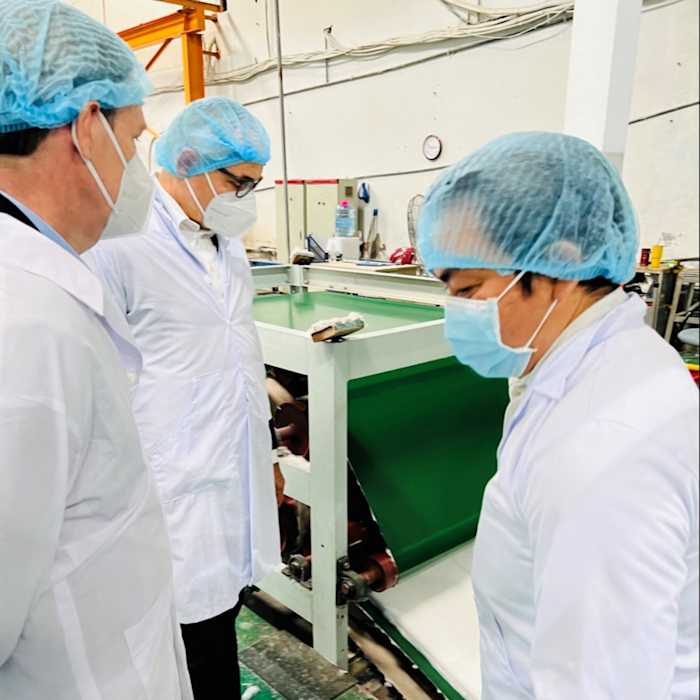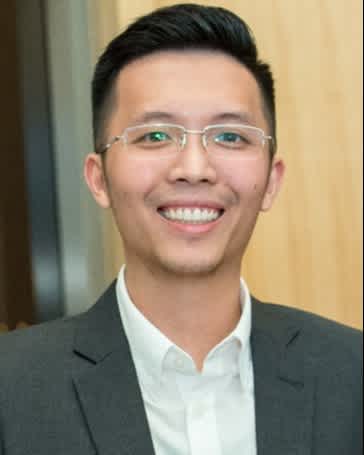Examples from the region
Paving the way for impact in Southeast Asia
A global priority: sustainable growth
As a fast-growing region encompassing 11 countries and nearly 700 million people, Southeast Asia is as diverse as it is attractive to international investors. The rapid economic development of the past 15 years has drawn attention not only to the region’s potential, but also to its vital role in helping the world meet the UN Sustainable Development Goals.
Yet Southeast Asia faces considerable challenges to sustainable growth. As a start, the average GDP per capita, at approximately USD 5,000, lags behind other regions. The region is one of the most vulnerable to climate change, according to the USAID. Agricultural productivity is also expected to decline as current practices strain land and water availability. When it comes to financial inclusion, the majority of micro, small- and medium-sized borrowers, especially women, are underbanked. And the need to upgrade, if not develop future-proof infrastructure - notably for the healthcare, water sanitation and education sectors - has become even more pressing in the wake of the COVID-19 pandemic.
For these reasons alone, Southeast Asia represents an immense opportunity for investors committed to advancing the UN Sustainable Development Goals (SDGs) in a high-growth market. Private impact investors and development finance institutions have stepped in and deployed increasing capital in the region. According to the Global Impact Investing Network, the USD 6.7 billion invested between 2017 and 2019 already represents a 60% jump when compared with the total USD 11.3 billion invested the decade prior.
Even with the rise in impact capital, the region still accounts for only a fraction of global impact investment. Because of the unique economic, cultural and political landscape of each country, exposure to promising impact investing opportunities is highly dependent on local knowledge and access.
Personal insights: impact capital at work
As a seasoned impact asset manager with specialized regional teams we have been able to identify several interesting impact opportunities and hope to pave the way for more impact capital to flow into the region. Based on our experience to date, we expect that the two most populous and fastest-growing economies in Southeast Asia, Vietnam and Indonesia, will continue to drive impact investing growth.
Vietnam
In Vietnam in particular, the effects of climate change are expected to exacerbate current problems – from sea level rise and salinity intrusion to flooding – within the decade. The scope of our engagement here reflects this degree of urgency.
Green Lending & Direct Investments On behalf of a climate finance fund that we manage, we partnered with four financial institutions (FIs) to support development of green and sustainable lending products aimed at reducing CO2 emissions. These partnerships provided long-term funding as well as Technical Assistance (TA). Technical Assistance is made possible through funding from donors*, and supports our partner FIs in developing renewable energy and energy efficiency loan products, as well as enhances their environmental & social risk management capability. In addition to indirectly financing CO2 reduction opportunities, we also supported four renewable energy developers and operators as direct investments.

Electric mobility We recently had the opportunity to contribute in financing a Vietnamese electric vehicle (EV) manufacturer VinFast to scale e-bus manufacturing and EV charging stations across the country. The transaction is expected to boost e-bus production for use in public transportation and EV development through support in building essential charging and support infrastructure across the country.

C&I Solar The demand for energy supply in Vietnam is increasing. This provides a great opportunity to support renewable energy infrastructure development and to drive clean energy production in the region. In supporting CME Solar last year, new commercial and industrial solar projects were financed to supply clean energy to various sectors in Vietnam. Similar transactions with Athena Energy resulted in an anticipated impact of 14,000 tons of annual CO2 emission savings. As a high CO2 emitting country, investing in clean energy is crucial to meet the global target of net zero emissions by 2050. Additional examples include supporting Norsk Solar where part of the funding will offset 200 000 tons of CO2 emissions and supporting GreenYellow’s 92 solar PV projects in Thailand.
Financial Inclusion Vietnam currently ranks as one of the world’s most unbanked nations. We are working with four local financial institutions to help the country overcome this problem. In most cases, responsAbility is the first foreign partner to provide long-term funding and technical support to these institutions, which strengthens their funding structure and allows them to better support their micro and SME borrowers in the long run. Furthermore, our engagements also bring more access to international capital markets and lenders, which provides clear additionality as the FIs can subsequently access other funding sources from like-minded investors.

Health sector In this sector, we explored how private sector investments can make healthcare more equitable. Private operators play a critical role in complementing public sector health systems especially for the low-income population. Last year, we supported a successful local hospital with implementing a cancer treatment center and building capacity to provide affordable privatecancer diagnosis and care. This hospital largely treats patients who are eligible under the social insurance scheme. We followed up with a financing package to a medical consumable manufacturer with a 60-year history, Bong Bach Tuyet Cotton, which supplied medical-grade face masks during peak Covid times. Regional manufacturing hubs are extremely efficient in an interconnected world but as we see during Covid times, economies relying exclusively on health products imports can have deadly consequences, often affecting the bottom of the pyramid disproportionately. We want to promote local health manufacturing know-how, help local entrepreneurs grow their businesses and create jobs.
Indonesia, Cambodia and beyond
Public toilet and waste management facilities are typically under-developed in Southeast Asia, while there is real demand among consumers. This issue is amplified during and post Covid as hygiene concerns are becoming more important. This year, we financed a waste management concession in Cambodia and an innovative company focused on improving public sanitation in the region. Mister Loo, a public toilet operator which already runs 50+ sites across Thailand, is looking to expand its outreach to Indonesia and Vietnam, which have a combined population of close to 380 million. Mister Loo is the first mover in the region with regards to this business model, who offers organized, well-maintained and responsibly treated waste public toilets to Asian consumers.
As we know from our colleagues in the region, sustainable growth starts at the local level. The key to accelerating the flow of impact capital into Southeast Asia – for the global economy as well as for global sustainability goals – is uncovering the right opportunities, wherever they are located.
*Donors include the German Federal Ministry for Economic Affairs and Climate Action (BMWK) and the UK’s Department for Business, Energy & Industrial Strategy (BEIS).

Quang Duy Bui
Duy is currently a Senior Investment Officer at responsAbility, based in Vietnam. He is responsible for investments in the Financial Inclusion and Climate Finance sectors in the Asia Pacific region and works closely with investees and partners on investments, fundings, and sustainable development initiatives. Duy joined responsAbility in 2017 and to date has accumulated over 13 years of professional investment management experience. He graduated from the University of Hong Kong and is currently a CFA charterholder.